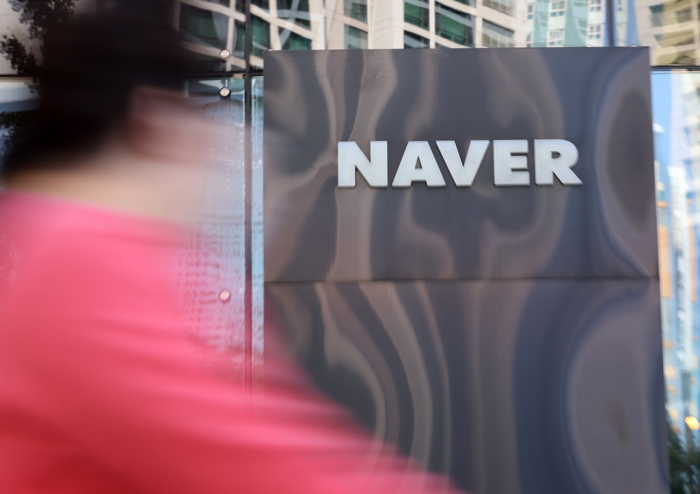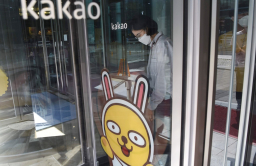-
KOSPI 2577.27 -2.21 -0.09%
-
KOSDAQ 722.52 -7.07 -0.97%
-
KOSPI200 341.49 +0.02 +0.01%
-
USD/KRW 1396 -2.00 0.14%
Naver to cut costs for profitability after disappointing Q1
Earnings
Naver to cut costs for profitability after disappointing Q1
The platform giant’s Q1 operating profit, sales missed market forecasts with revenues from most business units down
By
Apr 21, 2022 (Gmt+09:00)
2
Min read
News+

Naver Corp., South Korea’s dominant online platform, will focus on cutting costs and reducing new hiring to improve profitability as its disappointing quarterly earnings stoked concerns that its pandemic boom is coming to an end.
Naver on Thursday reported its operating profit fell 14.1% to 301.8 billion won ($244 million) in the first quarter from the previous three months on a consolidated basis, missing the market forecast of 341.6 billion won. Its sales declined 4.3% to 1.8 trillion won, also below the prediction of 1.9 trillion won.
Its stock dropped 1.9% to close at 309,500 won in Seoul’s main bourse, far underperforming a 0.35% gain in the wider Kospi.
The platform giant plans to control operating costs and slow new hiring in a bid to improve profitability, executives said, as analysts said higher spending and aggressive recruitment of developers hurt earnings in the January-March period.
“We plan to manage labor and marketing costs more carefully this year with a priority on sales growth,” said Naver CEO Choi Soo-yeon said in an earnings conference call. “We will try to gradually improve profitability.”
The tech juggernaut is also set to reconsider its hiring policy, CFO Kim Nam-sun said.
“The number of total employees increased 18% on-year as we have been aggressively hiring new staff to secure talent over the last two years,” Kim said. “From this year, we will review if we need to maintain such an aggressive recruitment policy except for special cases such as new projects.”
Naver reiterated its goal for growth based on its overseas expansion plans. Last week, it pledged to attract 1 billion users around the world and generate 15 trillion won in annual sales by 2027.
WEAKER SALES ACROSS THE BOARD
Most of Naver’s business units except for the commerce division logged weaker sales in the first quarter compared to the prior three months.
The search platform’s sales, which account for the largest of the company’s total revenue, fell 4.9% to 843.2 billion won, while sales of the fintech unit and the content business declined 6.9% and 7%, respectively, to 274.7 billion won and 217 billion won.
The commerce unit’s sales grew 2.7% to 416.1 billion won as the revenue includes sales from Kream, an online trading platform for limited edition products of premium and luxury brands, as well as Amuse, its vegan cosmetics brand. Excluding the impact of Kream and Amuse, the commerce unit’s sales were stagnant, analysts said. Sales of Kream and Amuse had been reflected in the contents business revenue.
“We may have seen normalization after rapid growth in the last two years,” Choi said. “We will focus on securing small-and medium-sized merchants as we believe that the existing strategy remains valid.”
Until recently, Naver has enjoyed strong earnings as measures against COVID-19 boosted businesses such as e-commerce. But the pandemic-driven boom has lost momentum as COVID-19 is predicted to become endemic.
Write to Seung-Woo Lee at leeswoo@hankyung.com
Jongwoo Cheon edited this article.
More To Read
-
 Tech, Media & TelecomNaver aims to attract 1 bn users via active M&As by 2027
Tech, Media & TelecomNaver aims to attract 1 bn users via active M&As by 2027Apr 13, 2022 (Gmt+09:00)
-
 Tech, Media & TelecomNaver, Kakao shares to fall further on sluggish outlook
Tech, Media & TelecomNaver, Kakao shares to fall further on sluggish outlookApr 12, 2022 (Gmt+09:00)


